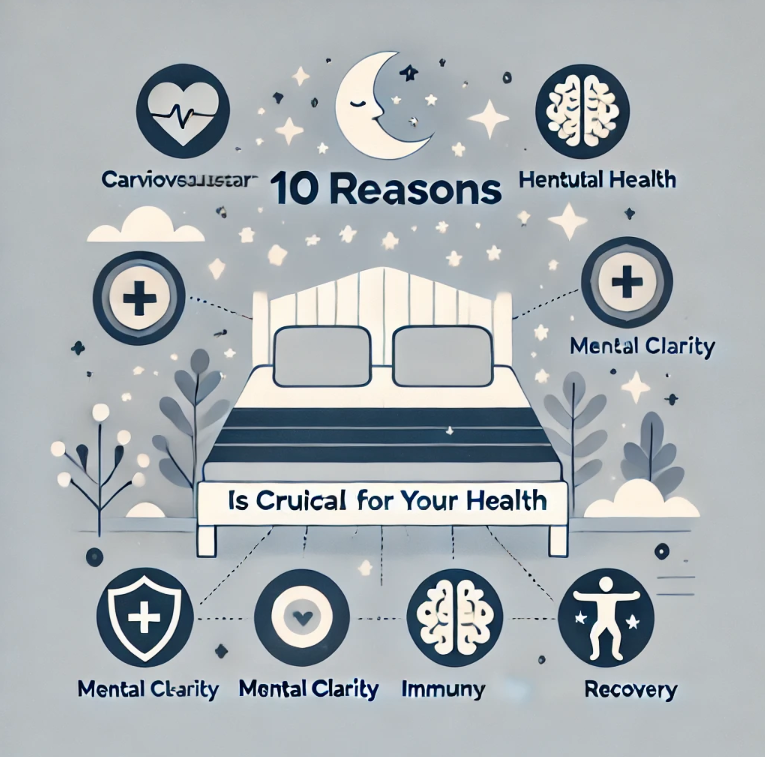Sleep plays a crucial role in maintaining overall health and well-being. It is during sleep that our body repairs itself, processes information, and rejuvenates for the next day. However, many people struggle to maintain good sleeping patterns, which can lead to various health issues such as fatigue, poor concentration, and weakened immunity. Adopting healthy sleep habits can drastically improve the quality of your rest and, by extension, your quality of life. Here, we’ll explore ten healthy sleep habits for a better lifestyle.
1. Stick to a Sleep Schedule
Consistency is key when it comes to developing healthy sleep habits. Going to bed and waking up at the same time every day helps regulate your body’s internal clock, also known as the circadian rhythm. This practice is especially beneficial for individuals struggling with insomnia or irregular sleep patterns.
Benefits of a Consistent Sleep Schedule:
| Benefit | Description |
|---|---|
| Improved Mood | Better emotional regulation throughout the day. |
| Increased Productivity | Enhanced cognitive function and focus. |
| Better Sleep Quality | Deeper, more restorative sleep cycles. |
2. Create a Relaxing Bedtime Routine
A soothing pre-sleep routine can signal to your body that it’s time to wind down. Activities like reading, meditating, or listening to calming music can help you relax. Avoid stimulating activities such as using electronic devices or watching intense TV shows.
3. Optimize Your Sleep Environment
Your bedroom environment significantly influences the quality of your sleep. Ensure your room is:
- Dark: Use blackout curtains or an eye mask.
- Quiet: Consider earplugs or white noise machines if needed.
- Cool: Maintain a comfortable temperature between 60-67°F (15-19°C).
- Clutter-Free: A tidy space promotes relaxation.
4. Be Mindful of Your Diet
What you eat and drink before bedtime affects your sleep. Avoid heavy meals, caffeine, and alcohol late in the evening. Instead, opt for light snacks such as:
- Bananas
- Almonds
- Chamomile tea
5. Limit Daytime Naps
While napping can be beneficial, excessive or irregular naps can interfere with nighttime sleep. Limit naps to 20-30 minutes and avoid napping late in the afternoon.
6. Get Regular Exercise
Physical activity helps regulate sleep patterns by reducing stress and improving overall fitness. However, avoid vigorous exercise close to bedtime, as it can increase alertness.
7. Manage Stress Effectively
Stress and anxiety are common culprits of poor sleep. Practice relaxation techniques such as:
- Deep breathing exercises
- Progressive muscle relaxation
- Journaling
8. Avoid Electronics Before Bed
Electronic devices emit blue light that disrupts melatonin production, making it harder to fall asleep. Set a screen curfew at least one hour before bedtime.
9. Keep a Sleep Diary
Tracking your sleep patterns can help identify issues and improve your habits. Include details such as:
- Bedtime and wake-up time
- Duration of sleep
- Any disturbances during the night
10. Seek Professional Help if Necessary
If you’ve tried improving your sleep habits without success, consult a healthcare provider. They can identify underlying conditions like sleep apnea or chronic insomnia and recommend appropriate treatments.

Table: Types of Sleeping Habits
| Type | Characteristics | Examples |
| Good Sleeping Habits | Promote restful and uninterrupted sleep. | Sticking to a schedule, avoiding electronics. |
| Bad Sleeping Habits | Disrupt sleep quality and quantity. | Late-night snacking, excessive screen time. |
| Healthy Sleep Habits for Adults | Focus on balanced routines. | Consistent bedtime, managing stress. |
| Healthy Sleep Habits for Kids | Encourage regular sleep patterns early. | Reading bedtime stories, setting strict sleep hours. |
FAQs
1. What are some examples of good sleep habits?
Examples include maintaining a regular sleep schedule, creating a calming bedtime routine, and avoiding stimulants like caffeine close to bedtime.
2. How can healthy sleep habits benefit students?
Good sleeping habits for students improve concentration, memory retention, and academic performance. Students who follow a consistent sleep routine are often more alert and focused during the day.
3. Can healthy sleep habits improve insomnia?
Yes, adopting good sleep habits for insomnia, such as relaxation techniques and maintaining a consistent sleep schedule, can significantly improve symptoms.
4. Are there any healthy sleep habits PDFs available?
Yes, many resources online provide downloadable PDFs that outline tips and guidelines for better sleep.
5. What are some bad sleeping habits to avoid?
Examples of bad sleeping habits include using electronic devices in bed, consuming caffeine late in the day, and irregular sleep schedules.
6. What are types of sleeping habits?
There are good sleeping habits, bad sleeping habits, and specific habits tailored to different groups like students, adults, and kids.
7. Why is sleep important for kids?
Healthy sleep habits for kids are vital for their growth, development, and overall well-being.


